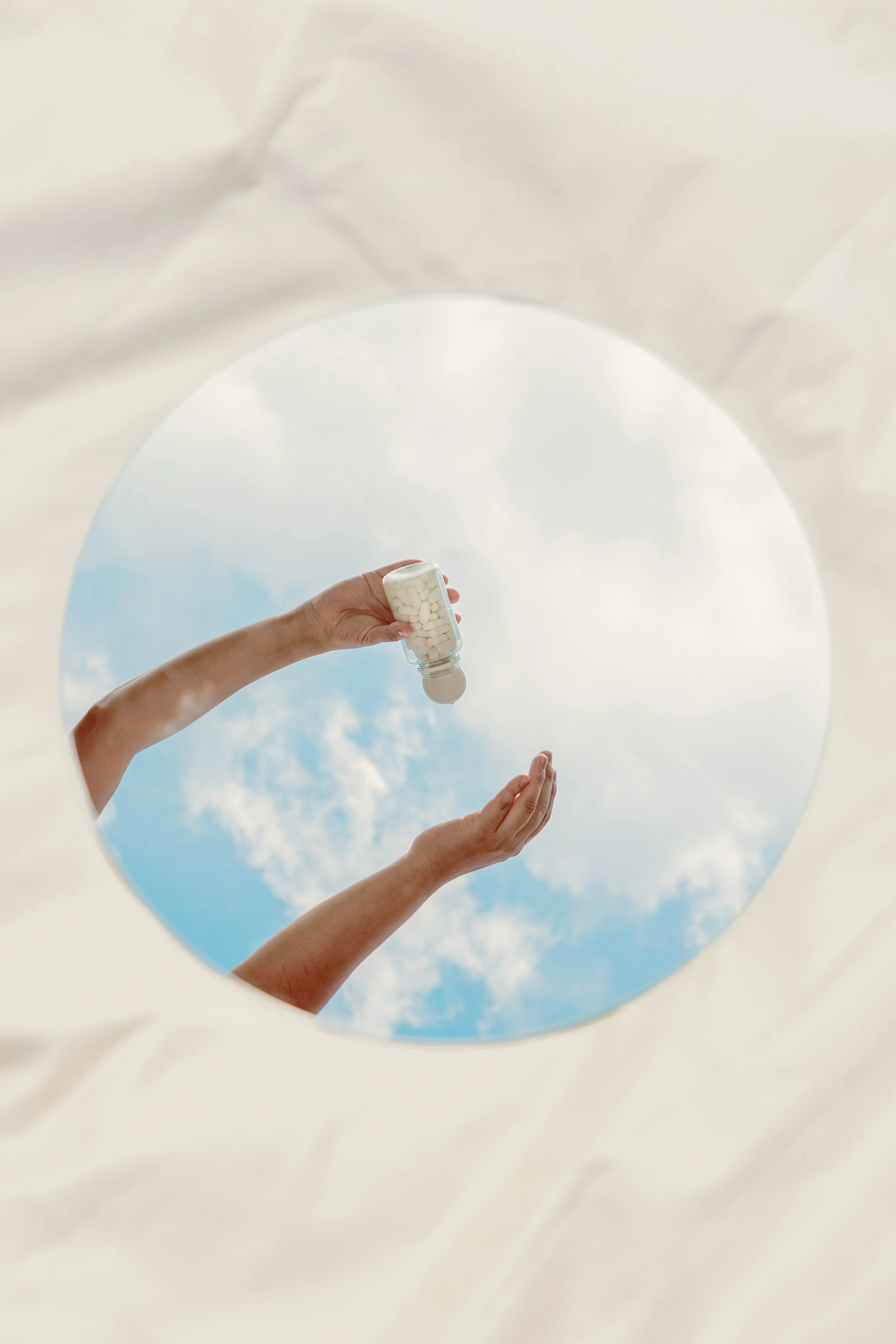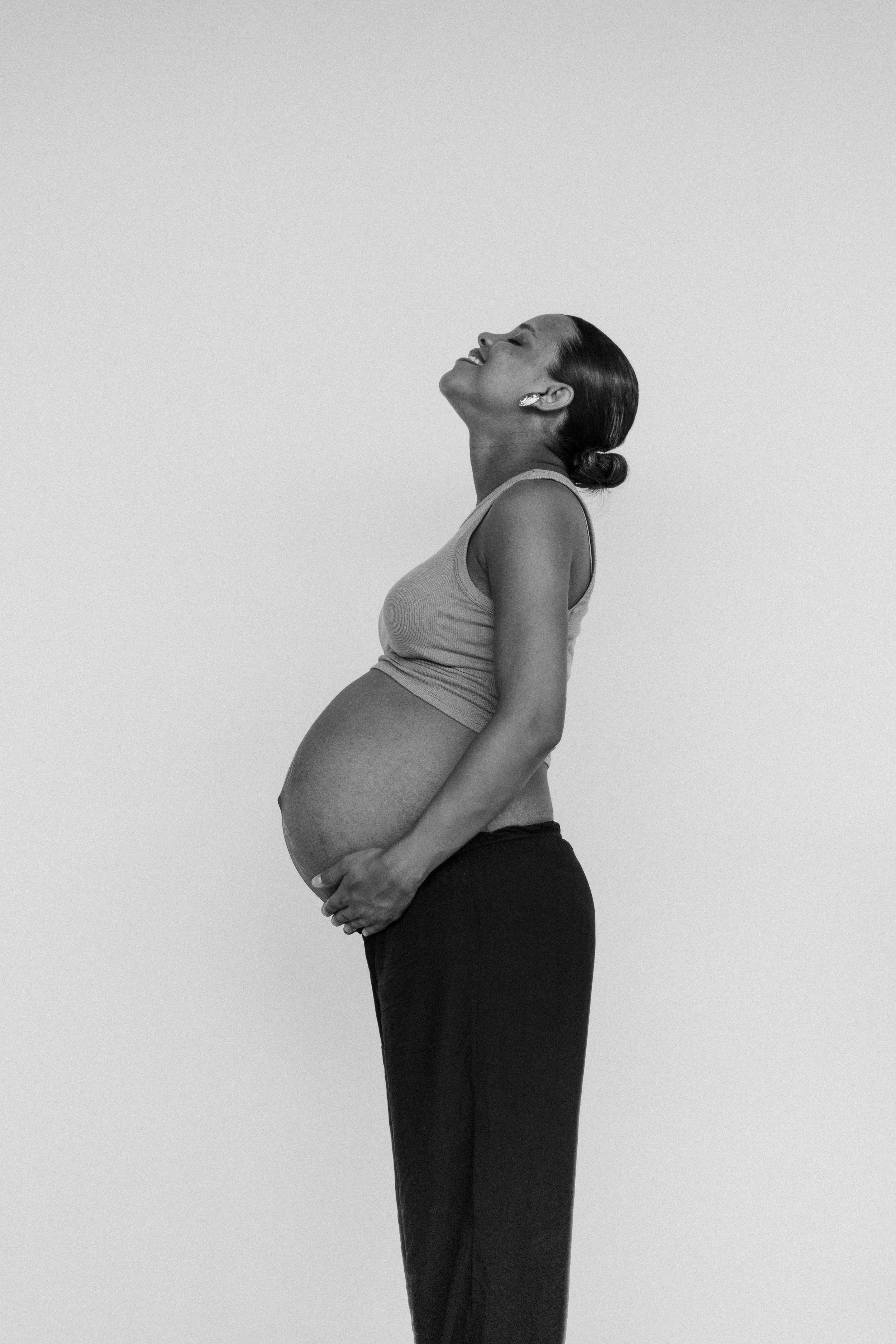
Essential Prenatal Nutrients
for Baby and Mama
Choosing Your Prenatal
Every woman’s body is unique, and while a prenatal vitamin lays the foundation, it isn’t the whole picture.
Think of it as your steady base—covering the essentials like folate, iron, vitamin D, and iodine.
From there, you can gently layer in extra support where your body calls for it, whether that’s more vitamin D, DHA for baby’s brain, or choline for added nourishment.

Essential Prenatal Nutrients
What to avoid during pregnancy?
Pregnancy isn’t about restriction—it’s about creating the safest, most nourishing space for you and your baby. Think of these “avoids” as acts of love, protecting your little one while you focus on what you can enjoy: wholesome foods, gentle movement, rest, and meaningful connection.
-
Alcohol
There’s no safe amount of alcohol during pregnancy. Even small amounts can affect your baby’s developing brain and increase the risk of birth defects.
Undercooked Meats, Fish & Eggs
These foods can carry harmful bacteria or parasites, which may cause infections that are especially risky during pregnancy. Always cook meat, fish, and eggs thoroughly.
High-Mercury Fish
Certain large fish — like shark, swordfish, king mackerel, and tilefish — are high in mercury, which can harm your baby’s developing brain and nervous system. Choose low-mercury fish like salmon, sardines, or trout instead.
Unpasteurized Dairy & Juices
Can carry listeria or harmful bacteria. Always choose pasteurized products.
Deli Meats & Hot Dogs
Risk of listeria contamination if eaten cold. Only safe if heated until steaming hot.
Raw Sprouts
Alfalfa, clover, and mung sprouts can easily harbor bacteria. Cook thoroughly or skip for now.
Excess Caffeine
Limit to about 200 mg/day (around one 12 oz cup of coffee). Higher amounts can raise risk of miscarriage or low birth weight.
Certain Herbal Teas
Some herbs may not be safe in pregnancy (like licorice root, pennyroyal, or sage). Always check individual ingredients.
Aspartame
A common artificial sweetener in diet sodas, sugar-free gums, and packaged foods. Excessive intake has been questioned for potential effects on fetal development. Limit or avoid artificial sweeteners during pregnancy and choose naturally sweet options like fruit, honey, or maple syrup when possible.
-
Smoking & Recreational Drugs
Smoking, vaping, cannabis, and other recreational drugs are strongly linked to preterm birth, low birth weight, and complications. There is no known safe amount.
Pain Relievers
(Ibuprofen, Aspirin, Naproxen)
These non-steroidal anti-inflammatory drugs (NSAIDs) can cause complications in pregnancy, especially in the third trimester, including heart and kidney issues in baby. Use only if specifically prescribed by your provider.
Certain Prescription Medications
Some prescription drugs may be unsafe or need dose adjustments during pregnancy. Always check with your provider before continuing or stopping any medications.
Herbal Supplements & High-Dose Vitamins
Many herbal or “natural” supplements are not well studied for safety in pregnancy. Avoid high-dose vitamin A (retinol form), adaptogens (like Ashwagandha or Maca), and medicinal mushrooms. Always confirm with your provider.
Vaccines
Live vaccines such as the MMR (measles, mumps, rubella) or Varicella (chickenpox) are not safe during pregnancy. Always talk to your provider about timing and what’s right for you.
-
Hot Tubs, Saunas & Very Hot Baths
High body temperatures in early pregnancy can increase the risk of neural tube defects and may also cause dizziness or dehydration.
Heavy Lifting & High-Impact Activities
Lifting very heavy objects or doing high-impact sports with a fall risk (like skiing, horseback riding, or contact sports) can strain your body and increase injury risk. Opt for lower-impact exercise, use proper form, and ask for help lifting heavier items.
Harsh Cleaning Chemicals & Paint Fumes
Certain chemicals and strong fumes can be irritating or harmful during pregnancy. Use natural or non-toxic cleaners when possible, wear gloves, and ensure good ventilation when painting or cleaning.
Pesticides & Herbicides
Pesticides and herbicides used on crops and lawns can contain chemicals linked to developmental and neurological concerns in babies.
Whenever possible, choose organic produce, wash fruits and vegetables thoroughly, and avoid applying lawn or garden chemicals during pregnancy.Fluoride
While fluoride is widely used to protect teeth, some studies have suggested a possible link between high prenatal fluoride exposure and later attention issues such as ADHD.
Cat Litter
Cat feces can carry Toxoplasmosis, which can harm your baby. Have someone else scoop the litter if possible. If you must do it, wear gloves and wash your hands thoroughly afterward.
-
Retinol & Retinoids
(Vitamin A Creams, Accutane)
Topical and oral retinoids (vitamin A derivatives) can cause serious birth defects. Avoid prescription acne treatments like Accutane and skincare products with retinol or retin-A.
High-Dose Salicylic Acid
High oral doses or concentrated chemical peels are unsafe during pregnancy. Small amounts in over-the-counter topical products (like face washes or spot treatments) are generally considered safe — though it’s best to minimize use if you can.
Unregulated Essential Oils
Certain essential oils — such as Clary sage and Pennyroyal — can trigger contractions or be unsafe during pregnancy. Use only pregnancy-safe oils and always check with your provider or a certified aromatherapist first.
Nail & Hair Treatments
Some nail polishes, hardeners, or keratin hair treatments can release formaldehyde fumes, which are best avoided in pregnancy. Skip these or choose non-toxic, pregnancy-safe salon products.
Instead of plain water — drink electrolyte-enhanced water, coconut water, or homemade mixes with sea salt + lemon + honey for minerals.
Electrolytes & Hydration
For Baby
Supports healthy blood flow and nutrient delivery through the placenta. It helps maintain the amniotic fluid balance that surrounds and protects baby. Proper hydration supports brain and nervous system development by ensuring steady circulation.
For Mama
Keeps energy and mood more stable by balancing sodium, potassium, and magnesium. It reduces leg cramps, dizziness, and fatigue often caused by low electrolyte balance. Hydration supports healthy blood pressure and lowers the risk of dehydration-related headaches or constipation. It also improves recovery from morning sickness by replenishing what’s lost through nausea or vomiting.
How much to drink daily
Aim for 8–12 cups (64–96 oz) of fluids daily during pregnancy. Exact needs vary with body size, activity level, and climate. If you’re active, sweating more, or dealing with nausea, you may need extra.

